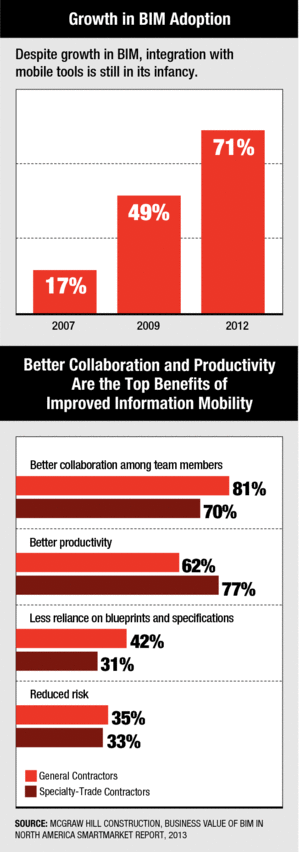
Data integration with building-information-modeling tools and cloud services is accelerating across the United Kingdom, thanks to the government's mandate that all public projects use BIM, including handover data for asset management, by 2016.
For Bentley Systems, which counts some 36% of its annual revenue from its customers in the European, Middle East and African markets that use its BIM and advanced collaboration tools, it's a good time to be doing business.
Fresh from its annual "Year in Infrastructure" conference, held at London's Metropole Hotel on Oct. 29-31, the firm is show-casing advances in its products for information modeling, integrated projects and asset management. The firm's tools have been featured on major projects across Europe, such as the U.K.'s Crossrail underground railway project and the parbuckling operation to right the grounded luxury vessel Costa Concordia off the coast of Italy.
Amid a flurry of news releases, the Exton, Pa.-based firm announced a major shift in strategy by offering managed services to customers, including hardware and hosting support as part of service-level agreements. The offering, called Bentley CONNECT Services, puts the company in position to offer clients a platform as a service, in addition to offering customers more options with software as a service.
"We're providing not only the software but the version management, the technical support and everything up to and including dedicated success under a service-level agreement," said Greg Bentley, CEO of Bentley Systems, during a press conference at the London event. "It is the future of the software business." The company has a staff of 500 technical support people dedicated to helping customers provision their IT environments for any one of its software packages. The U.K.'s highways agency, which Bentley notes is the seventh-largest infrastructure owner in the world, is already using the managed services with Bentley's AssetWise product set.
"We're responsible for maintaining the updates to the software, and we think we should take that on," Bentley added.
The managed-services rollout reflects a major trend among software vendors. Many deliver products both as a service and as part of a platform, including hardware and hosting as well as supporting traditional desktop-based offerings.
"It would be a great luxury to remain a software provider that just provides [intellectual property] licenses," Bentley said. "But that time has probably passed. And companies of our scale are prepared to take on what we [call] the management of those services, including that it be the right software and [will meet] the standards of a service-level agreement. It's a significant commitment that we've made."
Mind the Gap
Bentley says the managed-services offering will be fully provisioned in partnership with Microsoft's Windows Azure cloud service. The Azure service has gained positive reviews for its support of hybrid environments that include a mix of cloud and on-premises computing. That service allows project teams to access BIM data in the field and store field data in secure servers behind a customer's firewall. "It's about the ability to extend the capabilities of servers and connecting to them [in the field] through cloud services," added Bhupinder Singh, senior vice president for Bentley.
But as more AEC firms and contractors embrace BIM and mobility tools in the field, research shows the use of BIM models with mobile tools such as tablets is still in its infancy (see related story about information mobility research by McGraw Hill Construction).
Still, industry experts say the trend toward mobility is only going to accelerate. As Greg Bentley put it, more firms are looking at the "B" in BIM to mean "better decisions and better-performing assets" and at the "IM" in BIM to mean "information mobility" as much as "information modeling."

Post a comment to this article
Report Abusive Comment